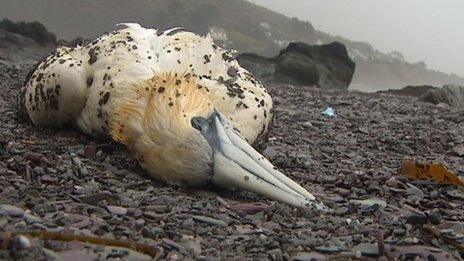Rare barnacle species among Dorset storm debris
- Published
"Rare and exotic" sea creatures have crossed the Atlantic and washed up on Dorset shores following recent storms.
Diver and photographer Steve Trewhella, from Wareham, has discovered several species, including ivory barnacles on Chesil Beach.
According to the Dorset Wildlife Trust (DWT), this is the first time the crustaceans, which are native to North America, the Caribbean and the Gulf of Mexico, have been recorded on land in the UK.
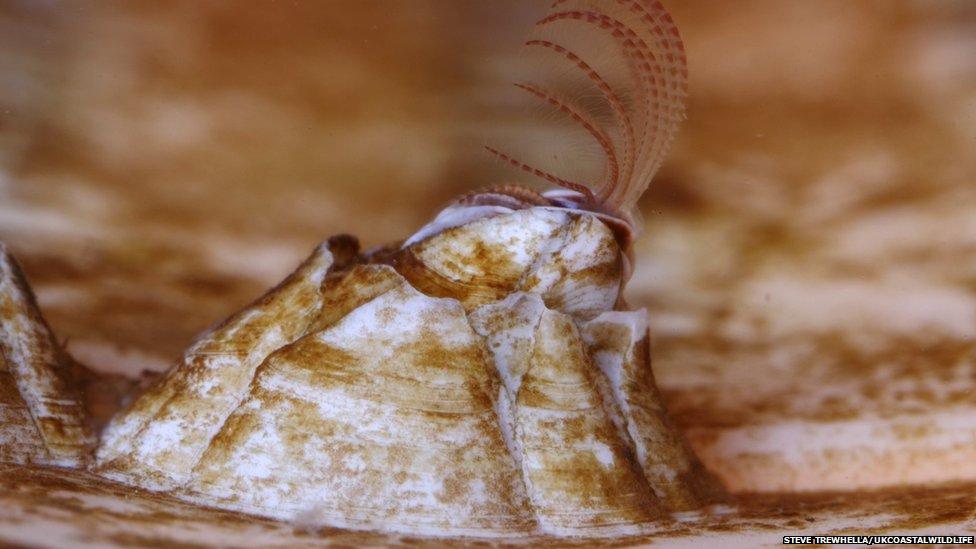
Julie Hatcher, DWT's marine awareness officer, said they had previously been found on the hulls of ships but not on beaches.
She added these creatures, as well as lepas hillii, a species of goose barnacle, which Mr Tewhella has also discovered, have travelled about 5,000 miles on the tides, mainly carried on "American fishing litter".
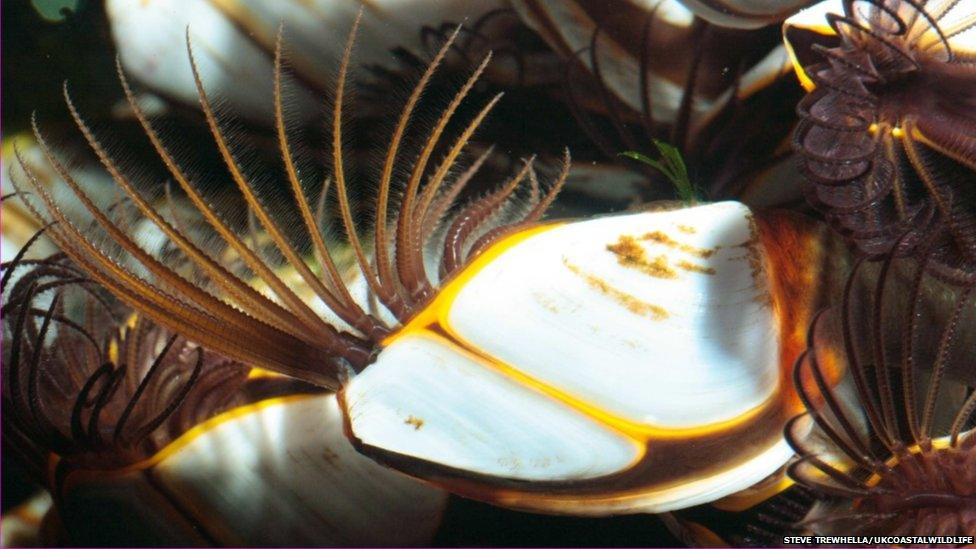
Mr Trewhella, who has a website about UK coastal wildlife, external, said his finds highlighted the "global scale of litter pollution".
He added 90% of the debris he had found on beaches in Dorset had been fishing related, including lobster pots, ropes and nets.
"Goose barnacles are one of the few things to benefit from rubbish as a habitat. They will settle on anything that floats, and sometimes you can find as many as five attached to a tiny plastic bottle top," he said.
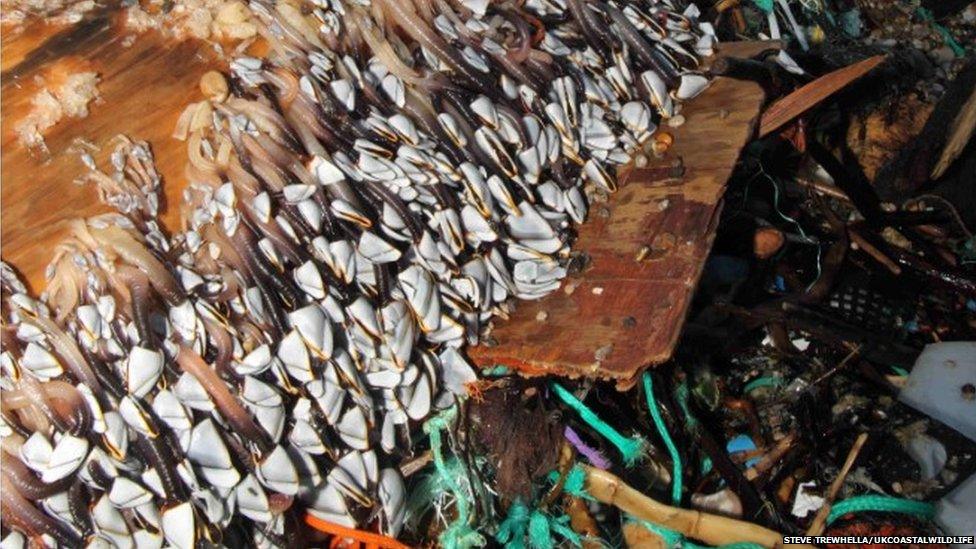
Mr Trewhella, who is housing a few of the species he has found in a salt water aquarium in his kitchen, said many of them were "not cold water species and don't occur in our waters".
"They are purely oceanic creatures and to see them on land is very unusual - very little is known about them," he added.
Ms Hatcher agreed and said the fact so many of the creatures had appeared on the shore provided "a rare opportunity to catch a glimpse of them".
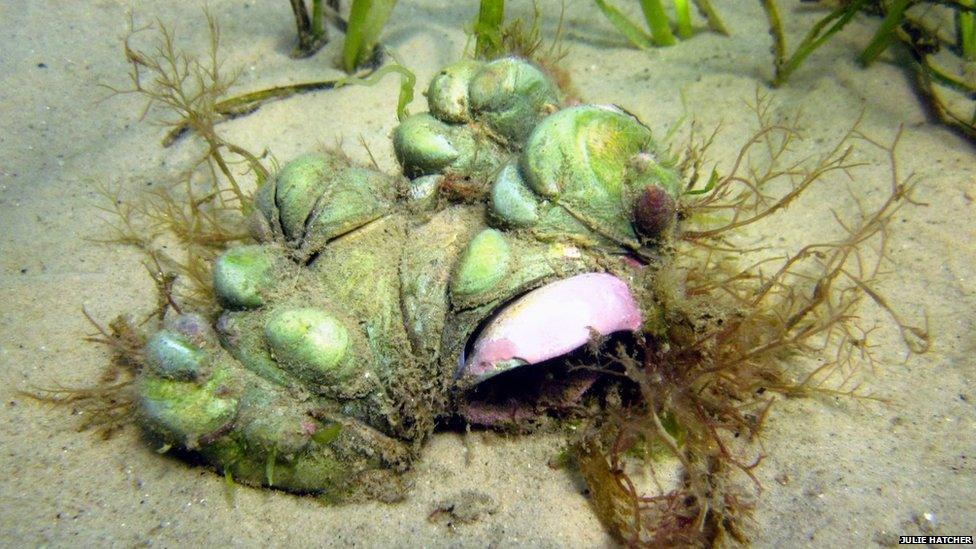
She added marine litter washing up on UK shores was a "potential way" for species to spread from one country to another.
"It's likely that we could get an increase in non-native species which can be a problem as some, such as wireweed seaweed and slipper limpets, can be invasive to our native species," she said.

Mr Trewhella's rare native American sea creature finds, which have also included jingle shells - a type of salt water clam, follow the discovery of a dead cow, dolphins and birds during a volunteer-led clean-up of Chesil Beach after strong winds and high tides whipped the South Coast.
- Published13 January 2014
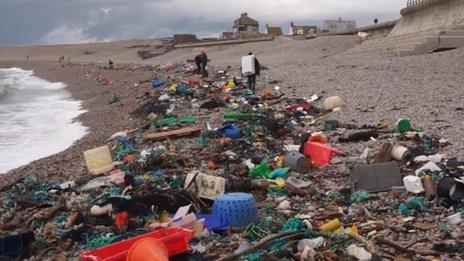
- Published13 January 2014
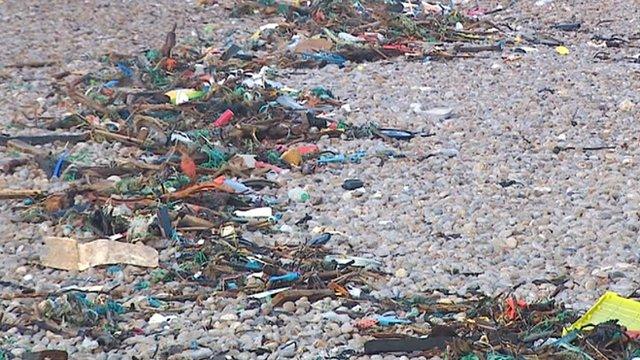
- Published9 January 2014
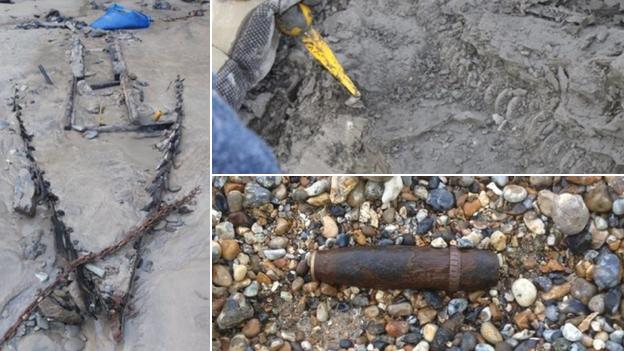
- Published9 January 2014
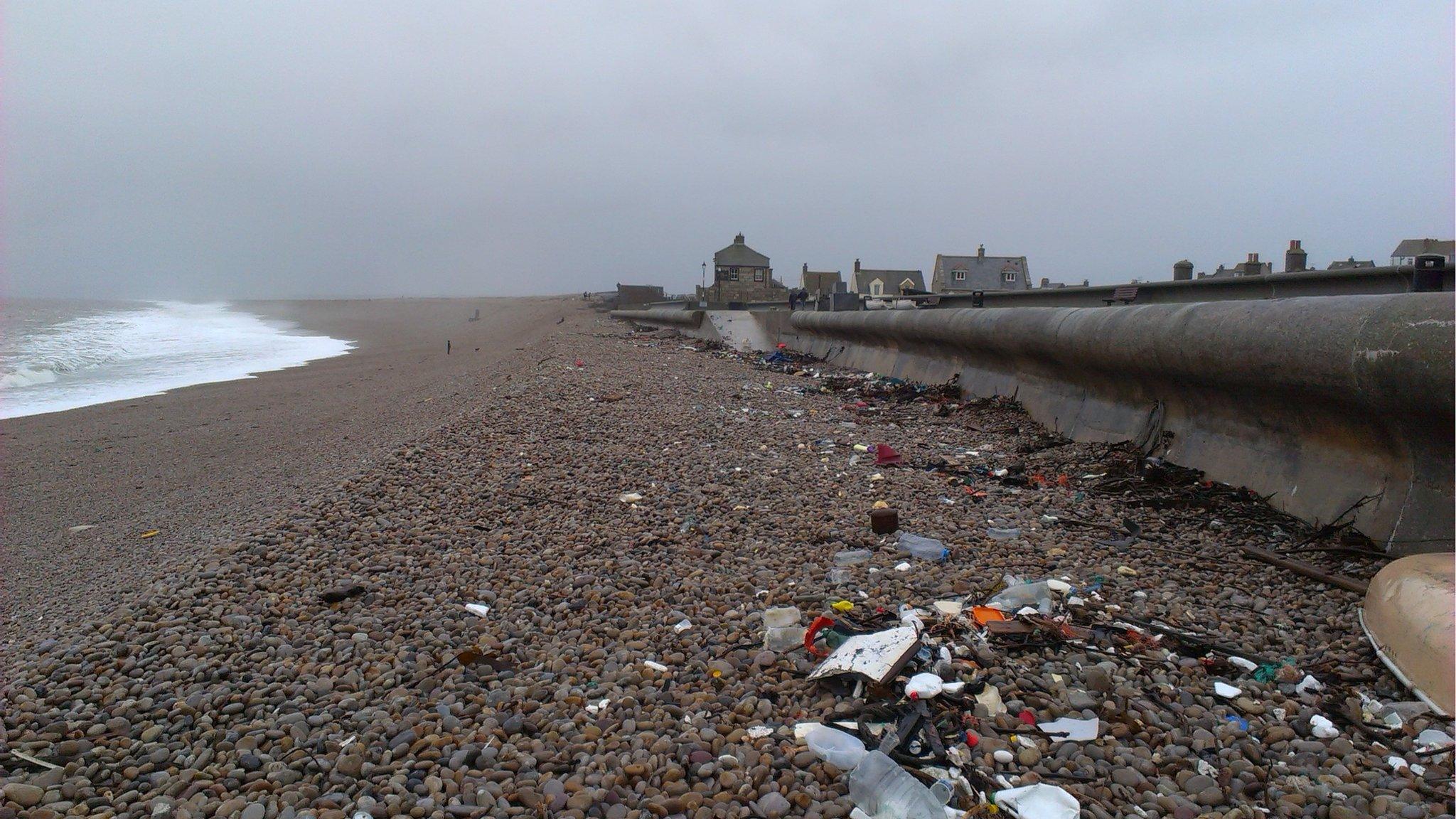
- Published21 November 2013
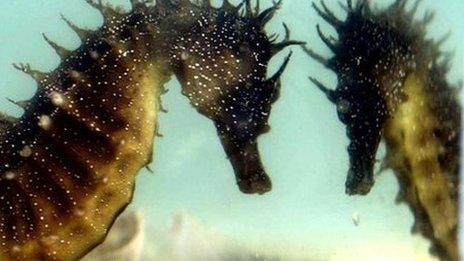
- Published21 November 2013
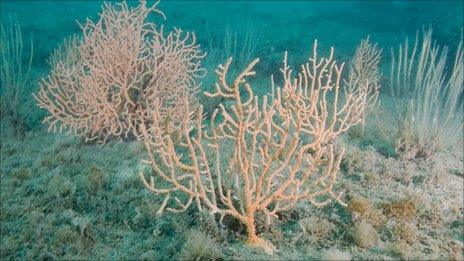
- Published7 January 2014
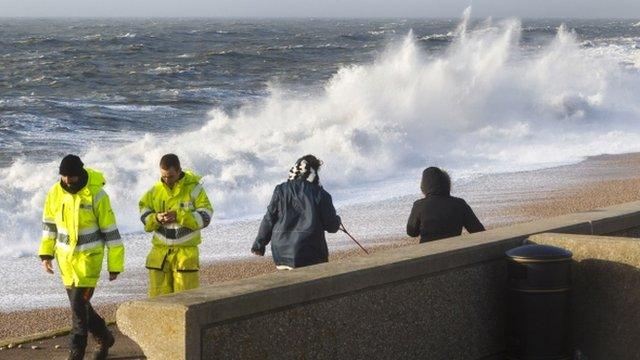
- Published19 April 2013
